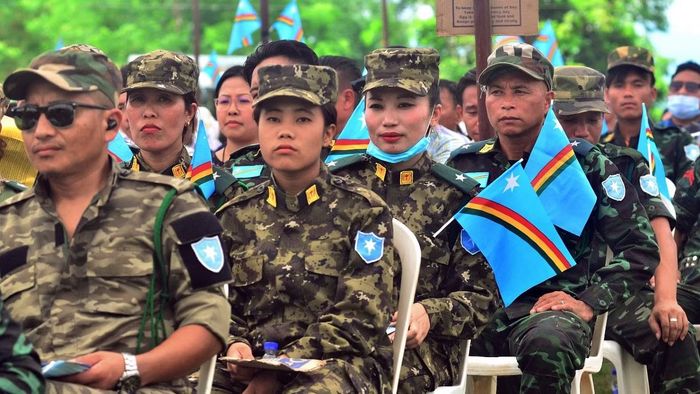Nagaland: NSCN condemns Indian government's abolition of FMR at India-Myanmar border
The National Socialist Council of Nagalim (NSCN) has issued a press statement expressing strong opposition to the recent decision by the Indian government to abolish the Free Movement Regime (FMR) along the India-Myanmar border and commence border fencing.

- Oct 29, 2024,
- Updated Oct 29, 2024, 10:42 AM IST
The National Socialist Council of Nagalim (NSCN) has issued a press statement expressing strong opposition to the recent decision by the Indian government to abolish the Free Movement Regime (FMR) along the India-Myanmar border and commence border fencing.
This FMR agreement, established 56 years ago, allowed indigenous Naga people to move freely across the India-Myanmar border, recognizing historical and familial connections that extend beyond national boundaries.
The NSCN’s statement underscores several key concerns:
The NSCN argues that the FMR recognized the deep historical, cultural, and familial ties between Nagas on both sides of the border. By eliminating the FMR, the Indian government, according to the NSCN, disregards the unique heritage and unity of the Naga people, attempting to impose an artificial boundary.
Also Read: Indian Army honours Infantry legacy with ceremonies in Manipur, Nagaland
The NSCN asserts that Nagas were not consulted in the 1952 Indo-Burma treaty, which established the international border, and that they retain an inalienable right to free movement within their ancestral lands. They argue that Nagas should not require permission from any government entity to move across this territory.
The NSCN’s Eastern Flank, representing the Naga Army, views the proposed fencing as a divisive tactic by the Indian government and an affront to Naga unity. The organization firmly rejects this project and has issued a warning that they will actively oppose it.
The statement instructs Naga citizens not to participate in or support the fencing initiative. Contractors and workers are explicitly advised not to engage in any construction activities related to the border fencing, with a caution that defiance will carry personal risks.
Indo-Naga Peace Talks: NSCN notes that the ongoing Indo-Naga peace talks could be jeopardized by the Indian government’s actions, which it perceives as undermining the peace process by disregarding Naga concerns.
The NSCN’s strong response suggests a determination to protect Naga identity and freedom of movement across traditional lands, highlighting tensions over the status and rights of Indigenous communities in border regions.